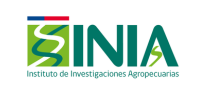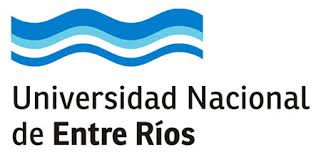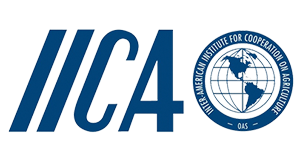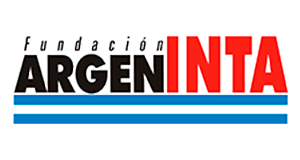Resilient rice of the future for LAC
The project seeks to train technicians and producers linked to the rice sector in LAC on the System of Rice Intensification (SRI), to increase productivity and sustainability while reducing costs and inputs.
Context of the story
There is an urgent need to produce high volumes of rice for the growing world population, but with two key challenges: doing so sustainably and addressing increasing climate risks. For this reason, this project proposed using the System of Rice Intensification (SRI) methodology, which promotes a change in management practices that lead to a reduction in the need for external inputs such as water and agrochemicals. This proposal is led by INIA Chile and co-executed by IDIAP Panama and INTA Argentina, it also has important associated institutions such as IICA, FLAR, and FUNDARROZ of Venezuela.
Towards sustainable management systems for food production that conserve natural resources and reduce environmental impact.
The implemented initiative
The project seeks to increase the productivity of rice cultivation using SRI, improving productive conditions, sustainability, profitability and food security in family agriculture systems of Chile, Venezuela, Panama and Argentina. Addressing the increasing consumer demand for more sustainably-produced food that considers the conservation of natural resources and has a lower environmental impact. Implementing and scaling a set of specific management practices for each region will allow for greater adaptation of rice to climate change. The Project is executed with the support of FONTAGRO and leadership of INIA Chile, with the co-execution of IDIAP of Panama and INTA Argentina and in partnership with IICA, FLAR, UNER, UNL and FUNDARROZ from Venezuela.
Adaptation of a Climate-Smart Rice Production System for LAC
The technological solution
This project aims to establish a technical cooperation platform between Argentina, Chile, Panama, and Venezuela, with the support of other institutions such as research centers, producer associations, and international cooperation agencies. The goal is to disseminate and share knowledge and experience generated in countries where the SRI methodology has already been adapted, validated, and used, in order to facilitate scaling at the commercial level. In addition, the project will support the adoption and validation process in those countries where SRI has not yet been validated, to increase the productivity and sustainability of rice cultivation in the region.
"With the SRI System and simple practices, we managed to increase yields with less seed, less water and fewer agrochemicals. It is, without a doubt, an environmentally-friendly system."
Type of project
Results
Results using SRI have achieved between a 20% to 100% increase in yield due to agronomic improvements including more roots, stems, spikes and full grains, less lodging and greater resilience to the effects of climate change such as droughts and extreme winds. The system contributes to reducing water use by 10 - 40% during the production cycle. This allows for better soil quality, higher microbial activity and a reduction in methane emissions (up to 60%). SRI reduces the seed required by up to 90% and agrochemical use by 20-50%. Even more important are the socio-economic impacts, which include an increase in profits for family farming producers by reducing costs and increasing yields. The system contributes to achieving the goals of national plans and policies on climate change, water resource management, food production and poverty reduction.
Relevant data
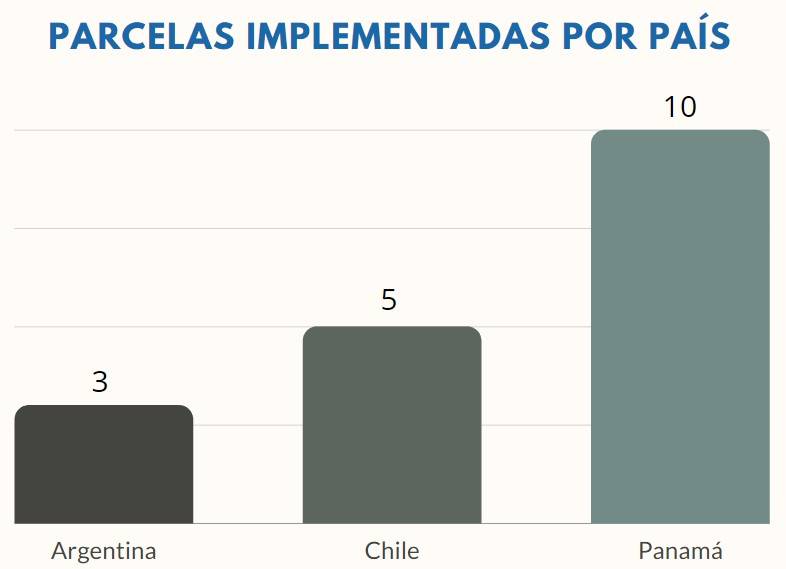
Adapting the Latin American rice sector to climate change hand in hand with rice farmers
KEYS FOR SRI ADAPTATION
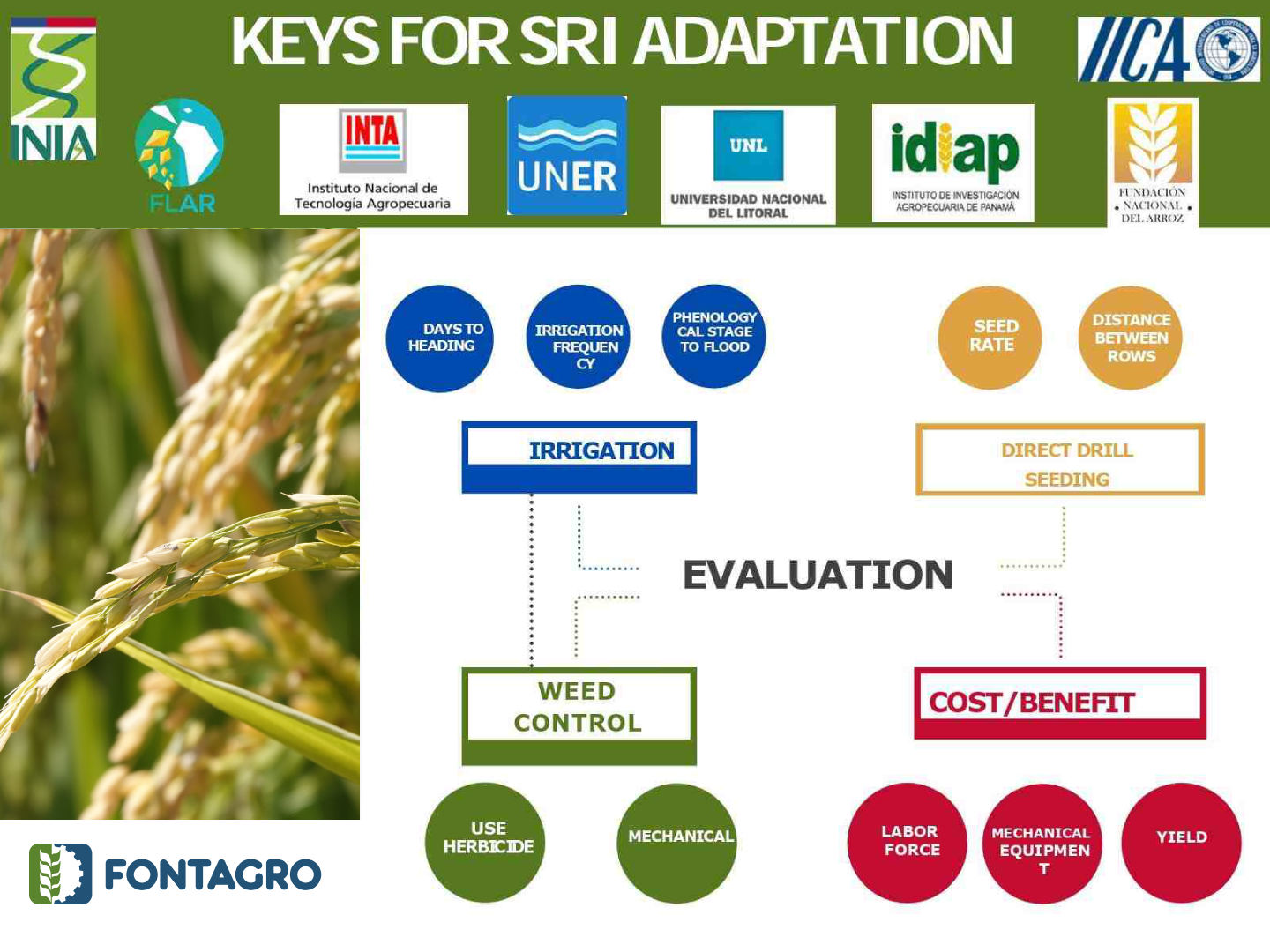

 Back to the project
Back to the project Chile
Chile Argentina
Argentina Panama
Panama Colombia
Colombia Venezuela
Venezuela